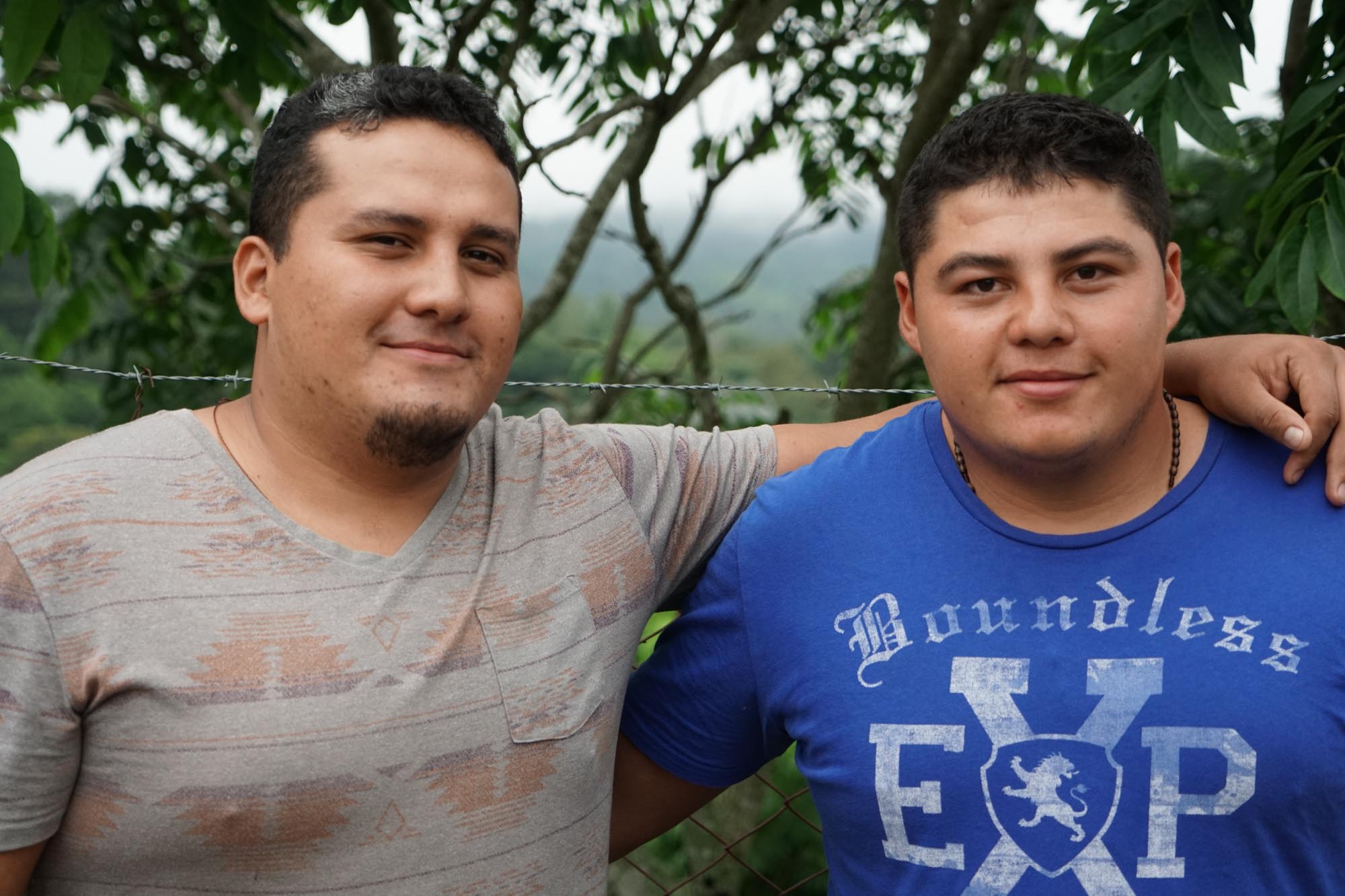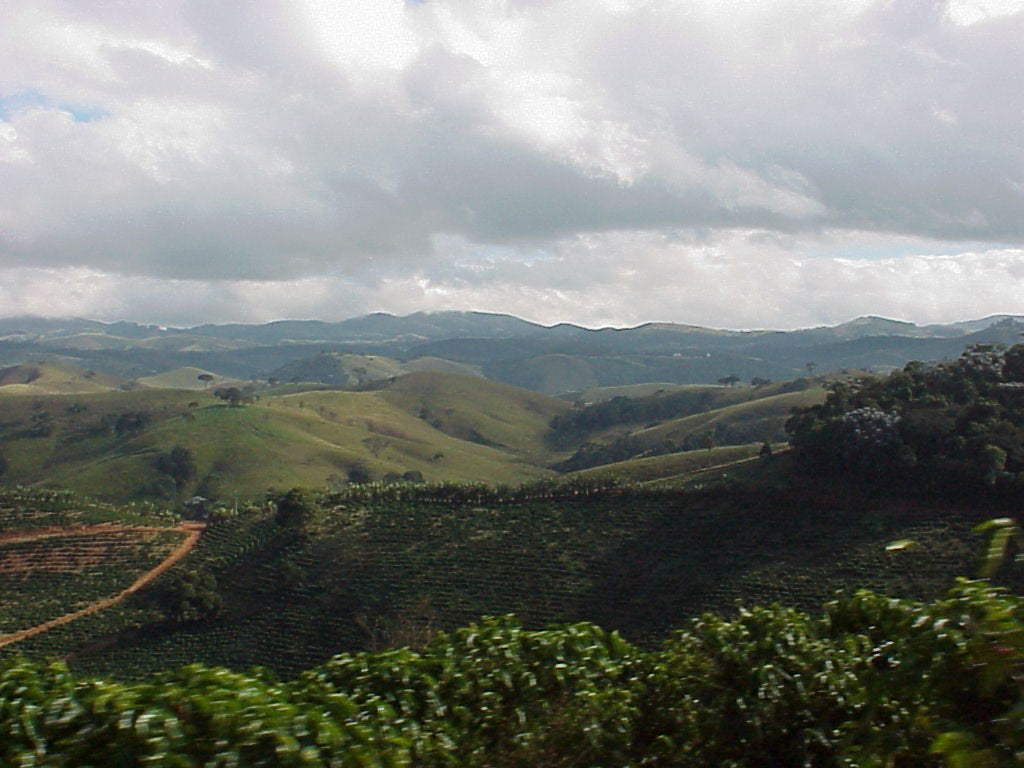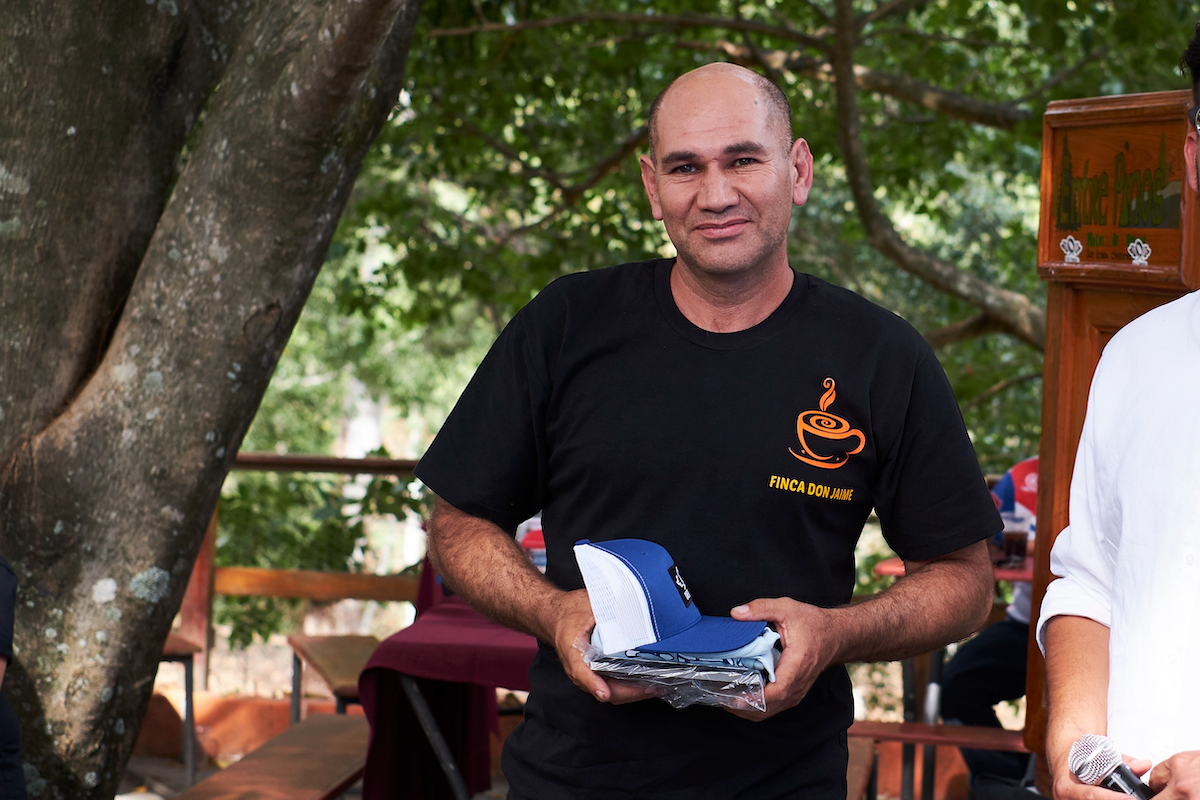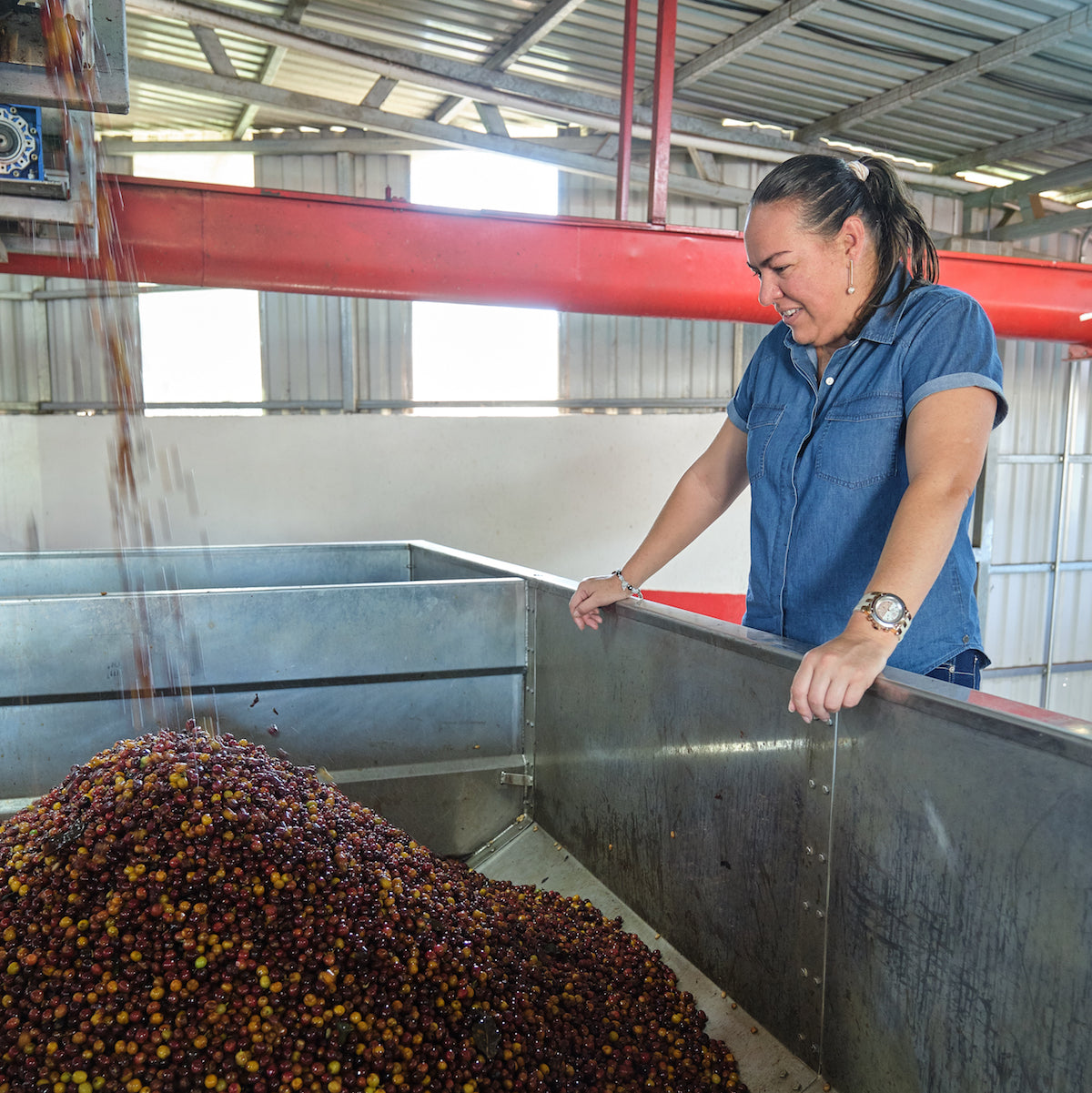El Salvador Carlos Lemus
·

·
Carlos Mauricio Lemus Landaverde is a young producer who inherited his father’s 4 hectare farm after he passed away in a car accident.
Carlos is following in his father’s footsteps with regards to quality and was awarded as the ninth-place winner in the 2017 El Salvador Cup of Excellence competition.
After picking, depulping, and sorting, coffee is put on raised beds to dry for 15–18 days.
Chalatenango is not as well-known a region for coffee production as Santa Ana in El Salvador. The average farm held by these smallholder producers is between 1–3 manzanas in size (1 manzana is slightly smaller than a hectare), and most yield fewer than 20 full-size bags of exportable coffee annually. They grow predominantly Bourbon, Pacas, and Pacamara variety coffees.
These lots are bagged in smaller increments (35 kilograms) and affectionately called "pequeños". These exquisite coffees are grown by committed, passionate farmers, many of whom are seeing specialty prices for their lots for the first time in the area's history.
Carlos is following in his father’s footsteps with regards to quality and was awarded as the ninth-place winner in the 2017 El Salvador Cup of Excellence competition.
After picking, depulping, and sorting, coffee is put on raised beds to dry for 15–18 days.
Chalatenango is not as well-known a region for coffee production as Santa Ana in El Salvador. The average farm held by these smallholder producers is between 1–3 manzanas in size (1 manzana is slightly smaller than a hectare), and most yield fewer than 20 full-size bags of exportable coffee annually. They grow predominantly Bourbon, Pacas, and Pacamara variety coffees.
These lots are bagged in smaller increments (35 kilograms) and affectionately called "pequeños". These exquisite coffees are grown by committed, passionate farmers, many of whom are seeing specialty prices for their lots for the first time in the area's history.




Comments